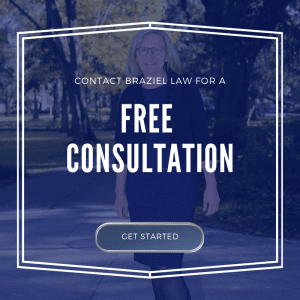The two common chapters of bankruptcy that individuals and married couples file are Chapter 7 and Chapter 13, but what happens if you need to switch chapters. Both offer many of the same benefits, though they operate very differently. Which chapter is the right debt relief solution for you is specific to the facts of your case.
Chapter 7 bankruptcy is generally the quickest form of bankruptcy, erases all or most of your debts, without a repayment plan, and in general, allows you to keep most or all of your personal belongings.
Chapter 13 bankruptcy is a reorganization of debts, creates a three to five-year repayment plan, and also allows you to keep most or all of your personal belongings. The Chapter 13 repayment plan gives you a chance to catch up on mortgage arrears, missed car payments, back taxes, and other debts. To qualify, you must have a steady source of income.
Switching Chapters: Converting Your Bankruptcy Case From One Chapter to Another
If your situation changes after filing for bankruptcy, you can ask the court to convert (to switch) your case to another bankruptcy chapter. You must meet the eligibility requirements of the new bankruptcy chapter and get court approval for the conversion.
To ask the bankruptcy court permission to convert from one chapter of bankruptcy to another, your bankruptcy attorney will file a motion with the court. So long as you qualify, have good reason to convert your case, and the court believes you’re not using the system inappropriately, then the judge should likely grant your motion for case conversion.
Converting from Chapter 13 to Chapter 7
A Chapter 13 plan lasts for three to five years, depending on your specific case. A lot can happen during that time. If you lose your ability to pay the monthly plan payment, then you may decide to convert to a Chapter 7 is best. Or, perhaps you are catching up mortgage arrears in your Chapter 13 plan, and you later realize you truly cannot afford to keep your house, then converting to a Chapter 7 may be worth exploring.
Converting from Chapter 7 to Chapter 13
You may consider switching from Chapter 7 to Chapter 13 bankruptcy for a number of reasons. For example, if the bankruptcy trustee plans to sell property that cannot be exempt (protected) in bankruptcy, you can convert your case to a Chapter 13 and pay for your unexempt property through your plan. Or, perhaps you had a difficult time passing the means test prior to filing and you fear the bankruptcy trustee may move to dismiss your Chapter 7 case.
It is not uncommon for a debtor’s situation to change after filing for bankruptcy, which would warrant a case conversion. Also, in some cases, new information is discovered during the bankruptcy which makes converting the case a wise decision. The bankruptcy court is likely to approve your first request for a case conversion so long as the conversion is done in good faith and you qualify for the new chapter of bankruptcy you’re seeking.
If you are in bankruptcy and are wondering if converting to a different chapter is the right move, we urge you to contact your bankruptcy attorney to discuss the details of your case.
Free Bankruptcy Consultation
Here at the Law Office of Barbara B. Braziel, we offer free consultations to anyone in Savannah, GA and the surrounding area. We are knowledgeable and experienced attorneys who specialize in bankruptcy and debt relief. We have over 35 years of experience. We’ve helped thousands of people get out of debt and have the fresh financial start they deserve.
Contact us here or call (833) 522-1069 to schedule your free consultation.
Find out more about Bankruptcy in our guide: All About Bankruptcy.
We are a debt relief agency. We help people file for bankruptcy relief under the U.S. Bankruptcy Code.
The post Switching Chapters: Converting Your Bankruptcy Case From One Chapter to Another appeared first on Braziel Law.

